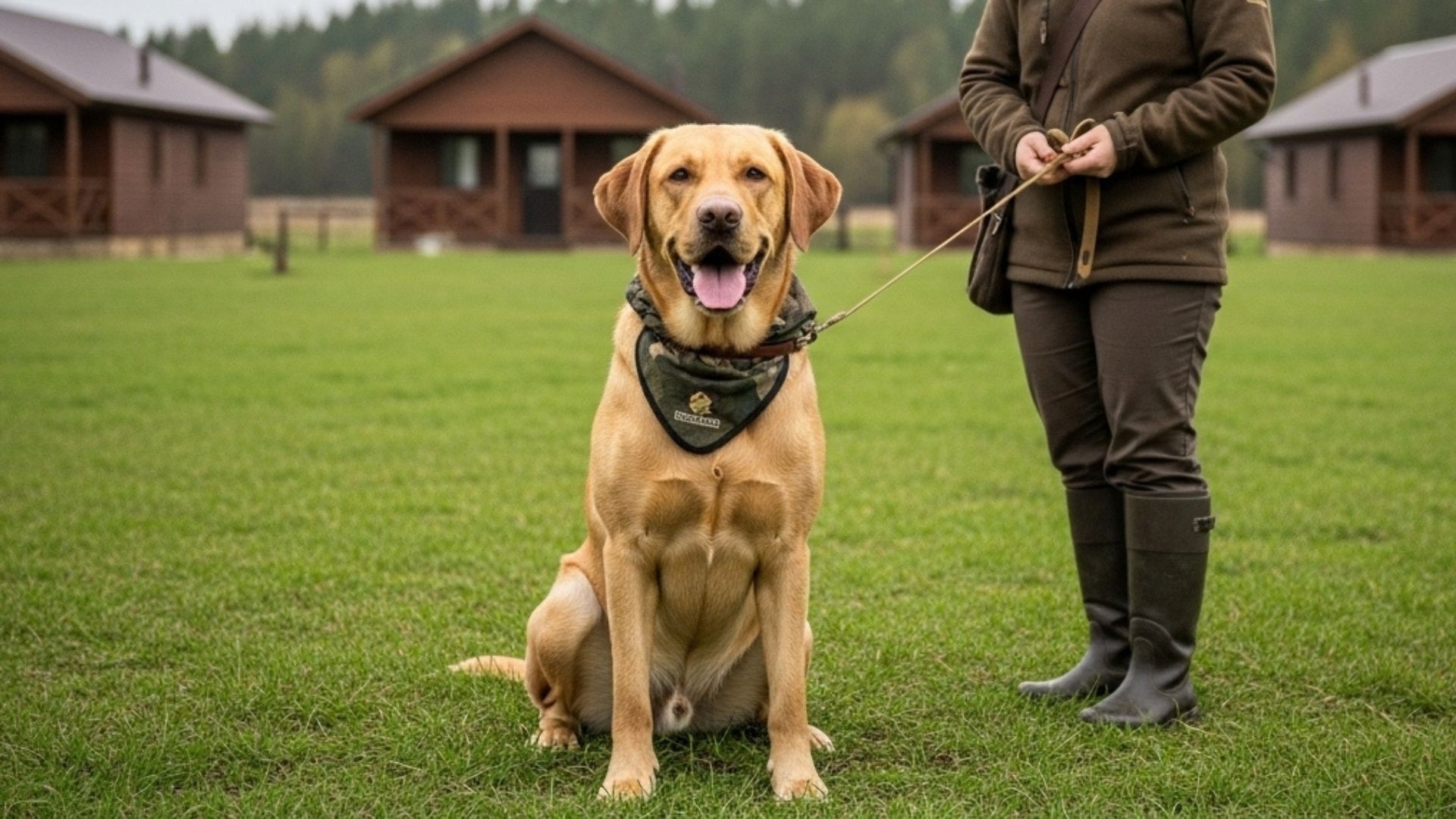A hunting lodge without a good dog is only half alive. The rifles, the gear, and even the hunters themselves cannot fill the role of a breed bred for the chase.
Dogs bring discipline to the field and companionship to the fire. They are the link between wilderness and man, instinct and tradition. Some breeds can sprint across wetlands to retrieve fallen ducks, while others hold steady on point until the hunter is ready.
These dogs are not just working animals; they are guardians of a way of life rooted in patience and skill. Without them, hunts lose their rhythm and lodges lose their soul.
In this guide, we will identify the best dog breeds for hunting lodges, the ones that stand by hunters in the marsh, the forest, and the cabin, where loyalty is valued as much as ability.
Key Takeaways
Hunts lose their rhythm when the right dog isn’t by your side, guiding each step from forest trail to cabin door.
German Shorthaired Pointers, often called the “Swiss Army knife of hunting dogs,” bring versatility that few breeds can match.
Chesapeake Bay Retrievers prove their grit in icy waters, while Weimaraners move like gray shadows through the woods.
Every breed in this guide has the heritage that makes a lodge feel alive.
Best Dog Breeds For Hunting Lodges
1. Labrador Retriever
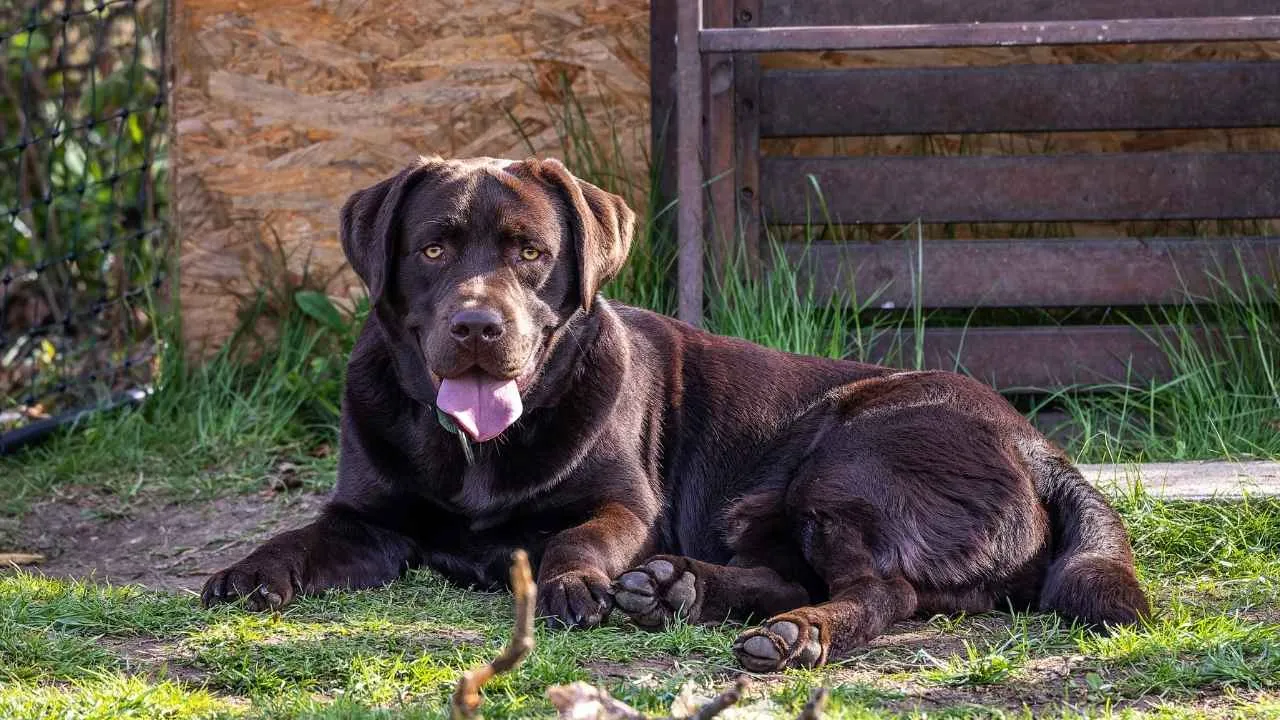
Labrador Retrievers are prized in hunting lodges for their ability to shift easily between work and downtime. They can track, flush, or retrieve game, yet remain calm indoors after a long day outside. This balance is why they are often the first choice for families who also host hunters.
Reliable Retrievers in Water and Woods
Their skill in water is unmatched, and their soft mouth allows them to retrieve game without damage. Generations of selective breeding have cemented this reputation, making them indispensable for duck hunting and upland game alike.
They bring extra advantages to hunting lodges:
Quick to learn new commands
Comfortable in rugged or wet terrain
Dependable even during long hunts
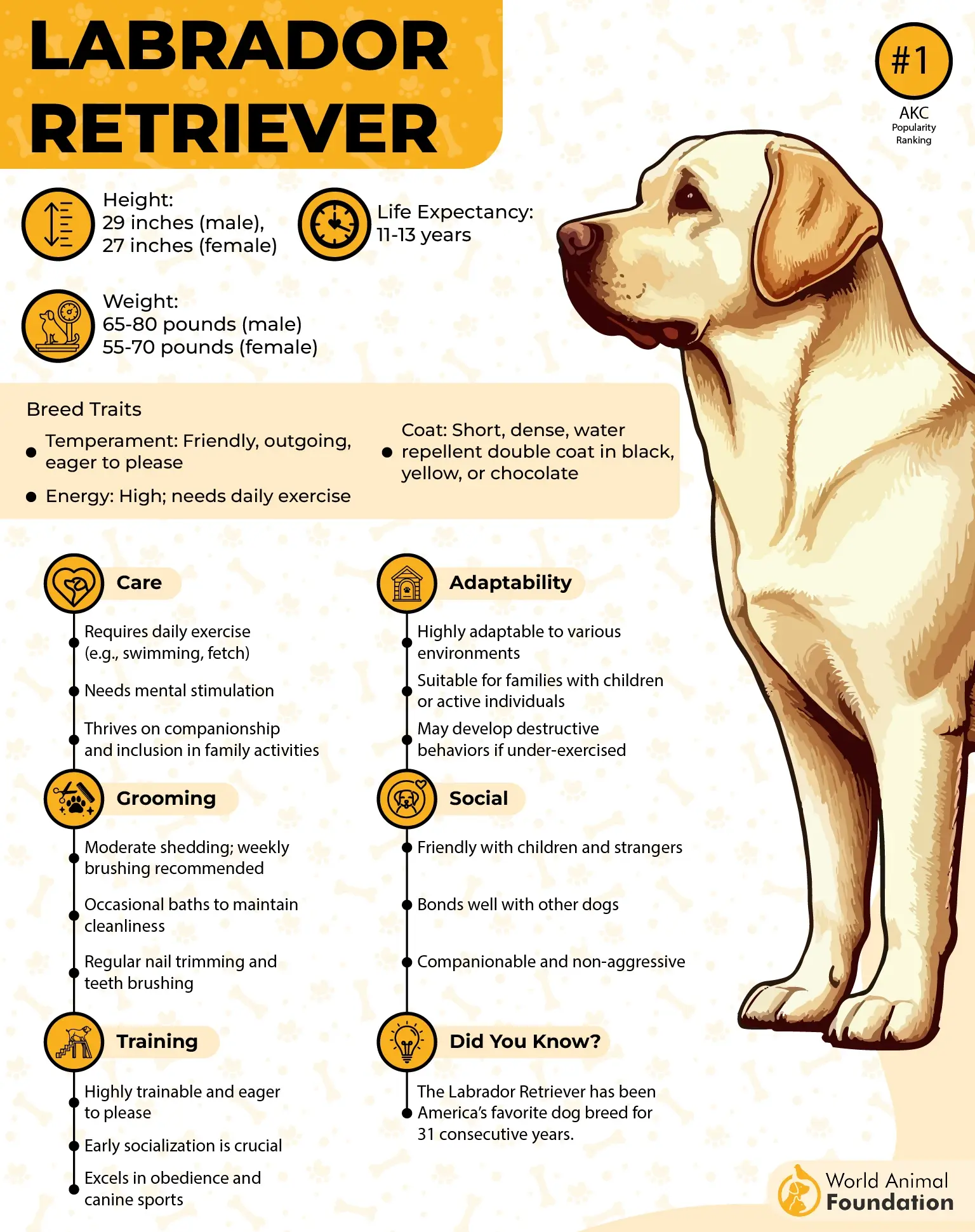
Steady Companions for Lodge Life
Labs are task-driven dogs. They adjust well to the social environment of a lodge. Their even temperament helps them move seamlessly from outdoor work to evenings spent indoors. Hunters appreciate that they can be both partners in the field and easy-going house dogs.
Fun Fact: The Labrador’s name comes from its early use in Newfoundland, where fishermen relied on them to haul nets and retrieve fish before they became celebrated hunting companions.
2. Golden Retriever
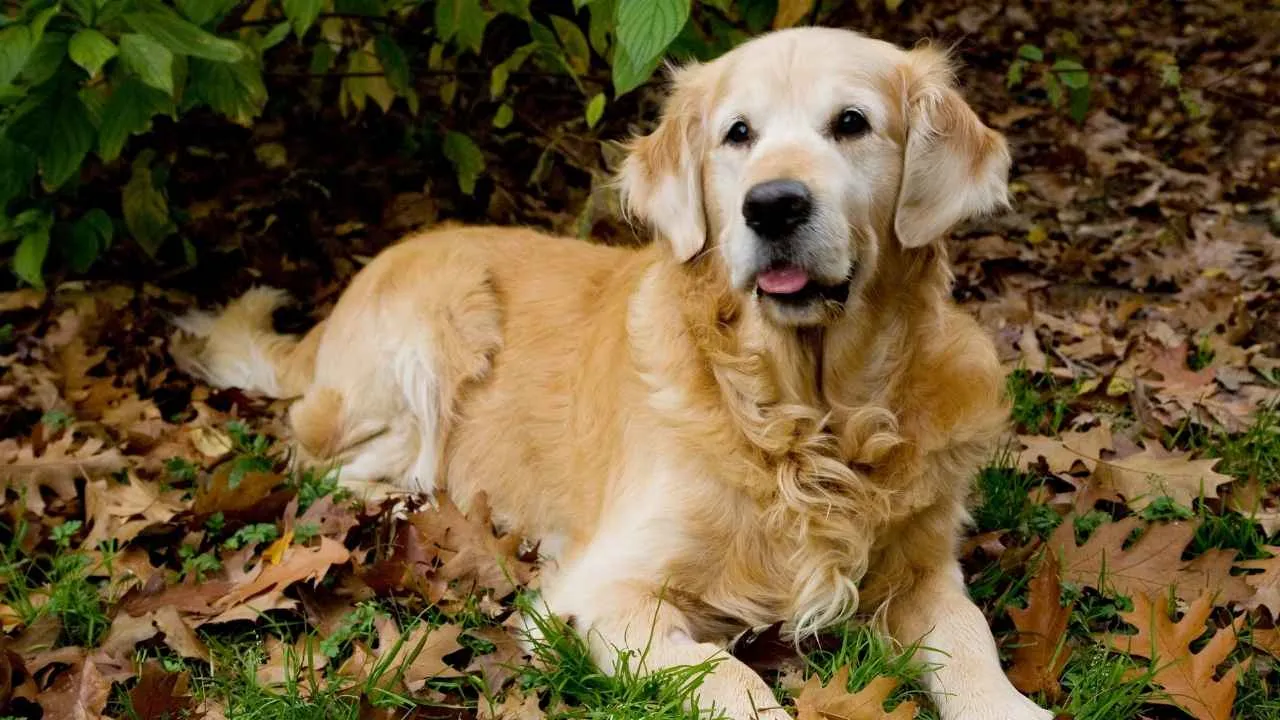
Golden Retrievers are well-loved for their steady and patient nature, qualities that extend beautifully into a hunting lodge environment. Their calm energy makes them comfortable around guests while still being ready to switch into working mode outdoors.
Bred for Bird Work
Originally developed in Scotland to retrieve waterfowl, Goldens excel in tracking and carrying game without damaging it.
Their soft mouths make them especially skilled at bird hunting, a trait still celebrated by hunters today. Even after long hours in the field, they maintain enthusiasm for the task at hand.
Their usefulness stretches beyond the hunt itself:
Easygoing presence indoors with guests
Strong retrieving instincts outdoors
Quick learners who adapt well to varied hunting grounds

Reliable Companion in the Lodge
These dogs are as comfortable stretched by the fireplace as they are working in muddy fields. Their sociable temperament means they blend naturally into lodge life, greeting new people without hesitation. For hunters who also value a family-friendly companion, Goldens provide both roles seamlessly.
🎧 Dogcast
Episode 5 — Are Squirrels Secret Agents?
If you don’t hear sound, tap the button above to enable audio.
3. English Springer Spaniel
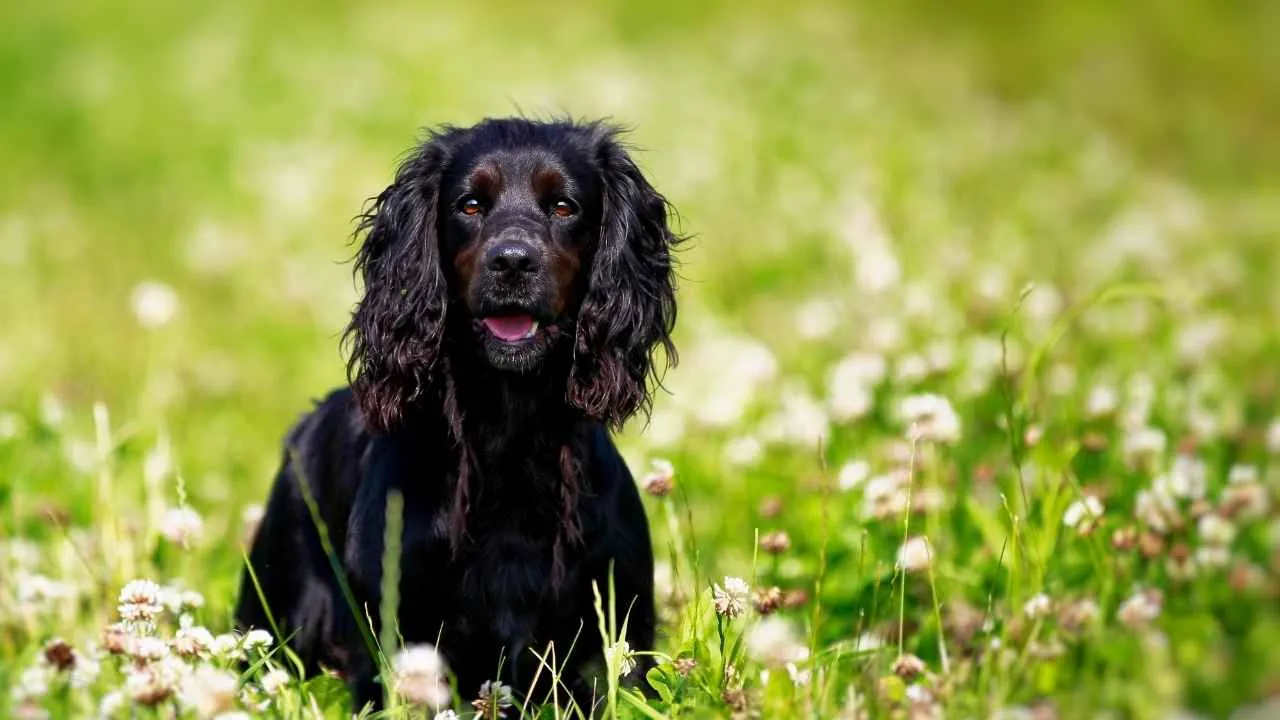
The English Springer Spaniel is a lively, eager-to-please breed that blends well into the atmosphere of a hunting lodge.
Its cheerful presence keeps the surroundings active, while its sharp senses ensure nothing moving outside goes unnoticed. This balance of spirit and alertness makes it a favorite among field sports enthusiasts.
Skilled Bird Dog on the Hunt
Bred for flushing and retrieving, the Springer has long been relied on by hunters pursuing upland birds. Its smaller frame compared to retrievers allows it to push through dense cover and drive game into the open. Quick and responsive, it handles both the chase and the retrieve with dependable efficiency.
Short reminders of its working edge:
Easily maneuvers through tight brush
Retrieves with reliability on long runs
Stays focused even during extended hunts
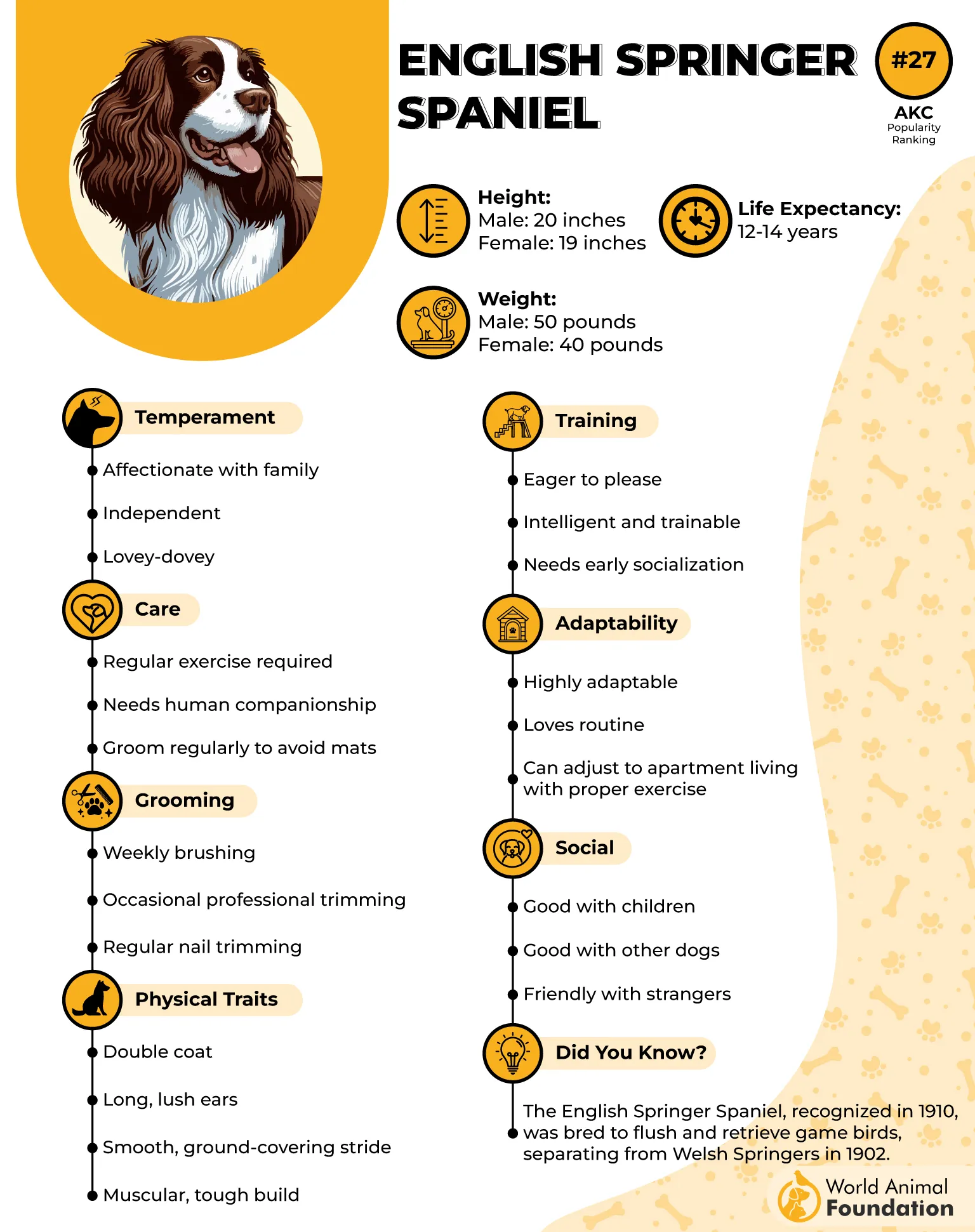
Keen Bond with Hunters
More than just a worker, the Springer thrives when included as part of the hunting group. It tunes into human direction with enthusiasm, often anticipating commands before they’re spoken. This intuitive cooperation strengthens the bond between handler and dog, making every outing more effective.
Fun Fact: English Springer Spaniels are so good at detecting scents that some have been employed by customs and police agencies to locate explosives and illegal substances.
4. German Shorthaired Pointer
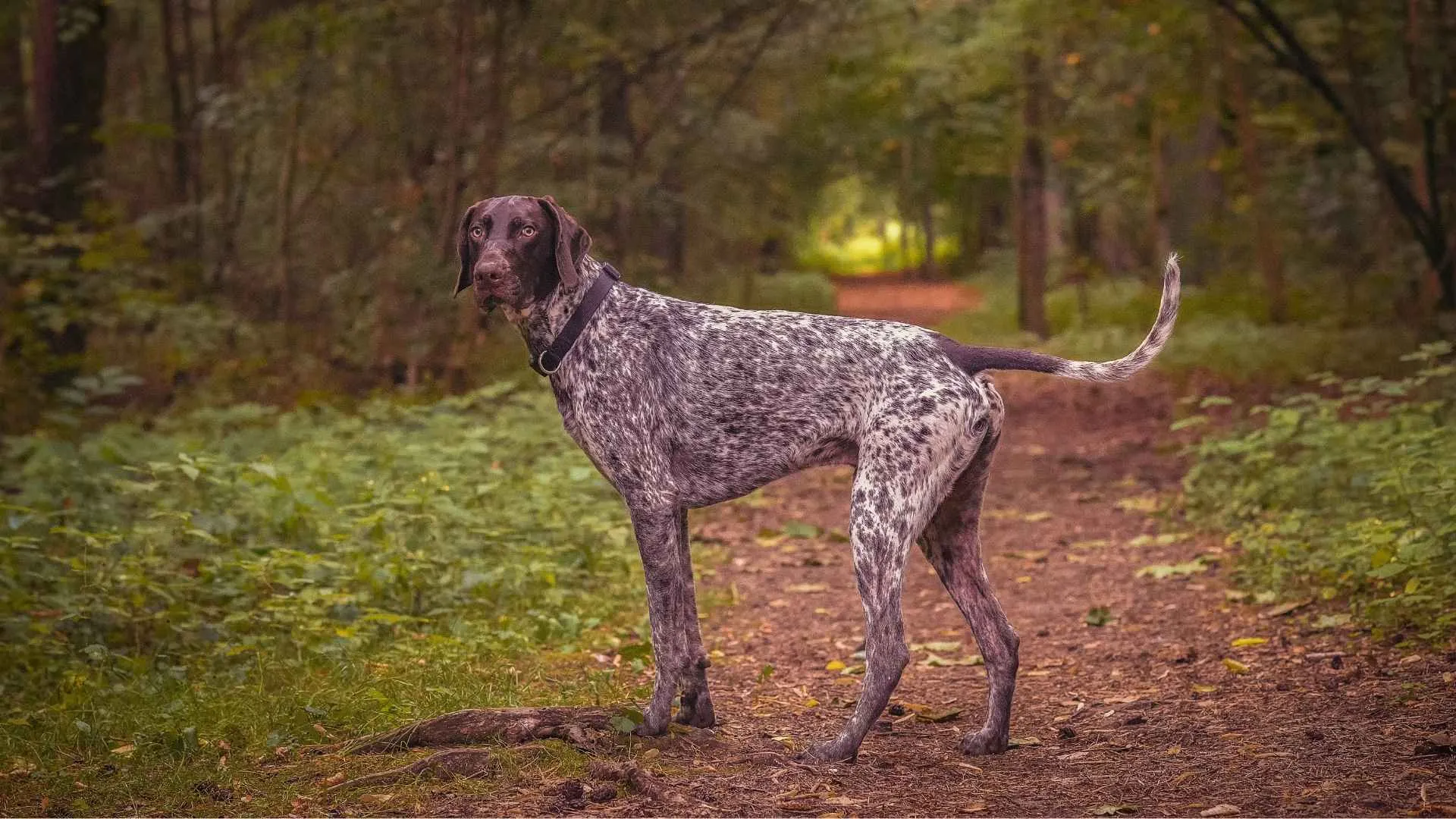
German Shorthaired Pointers are built for action, moving with speed and precision across open land. Their stamina makes them ideal for hunting lodges where long days outdoors are the norm. These dogs rarely lose focus once they lock onto a scent.
Multi-Skilled Hunting Dog
This breed is celebrated for pointing and retrieving, excelling in every kind of upland game hunting, as per the AKC.
They’re equally effective in wetlands, thanks to their water-resistant coat and strong swimming ability. Their adaptability makes them a reliable choice for varied terrains around a lodge.
Here’s what sets them apart in the field:
Keen scenting ability for locating hidden game
Endurance to cover miles without slowing down
The retrieving instinct saves hunters valuable time
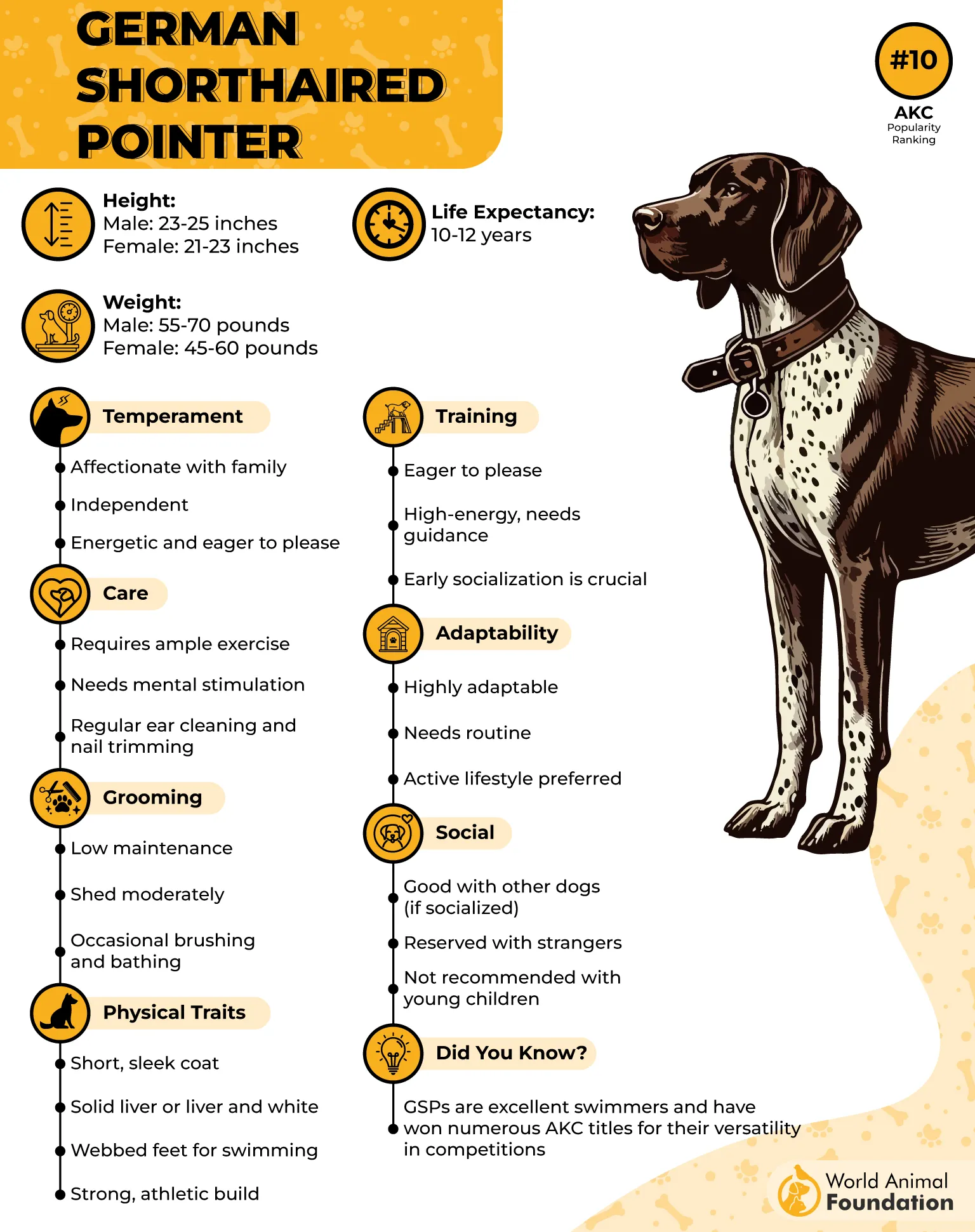
Demanding Yet Rewarding
Their athleticism comes with a boundless drive, which means they need constant engagement. Without hunting or outdoor activity, they can grow restless and channel their energy in unwanted ways. For hunters, this intensity translates into unmatched loyalty and drive during the chase.
Did you know? GSPs are nicknamed the “Swiss Army knife of hunting dogs” for their ability to track, point, flush, and retrieve—skills rarely mastered by a single breed.
5. Vizsla
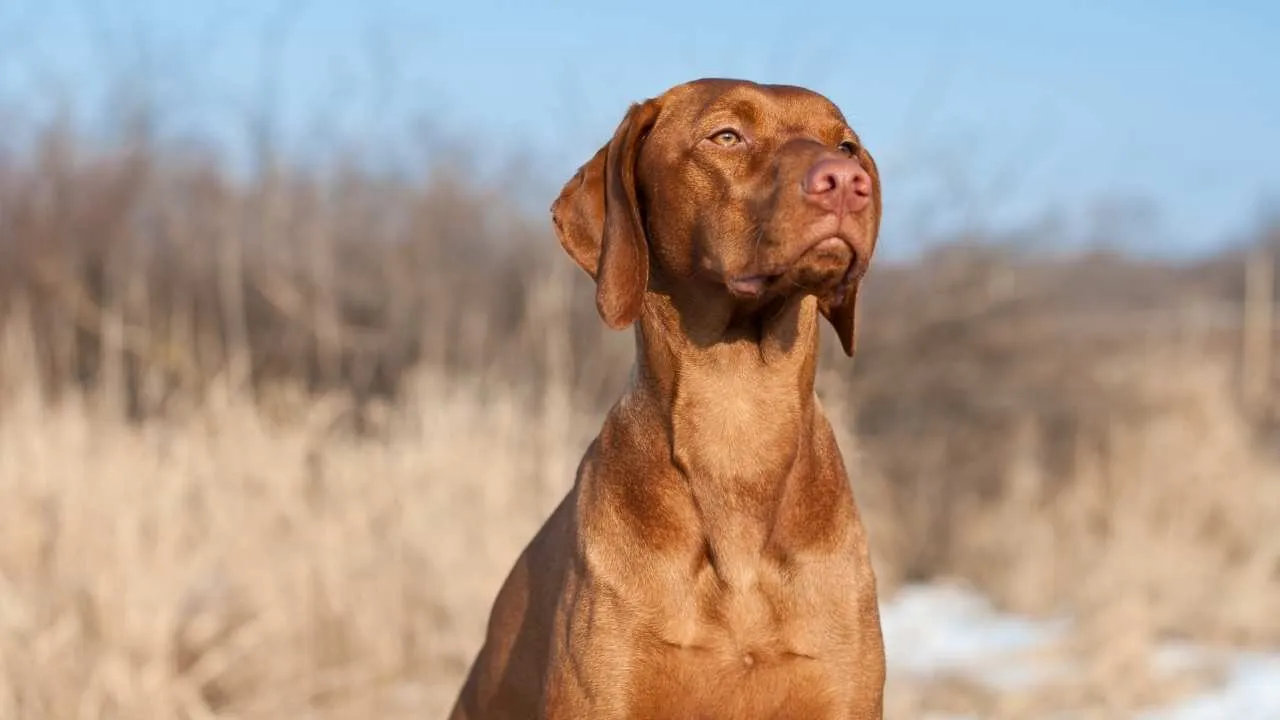
The Vizsla is one of the oldest known hunting dogs, tracing back to Hungarian nobility centuries ago. Originally bred for pointing and retrieving, it became popular for its versatility in the field. This heritage makes it an outstanding companion for hunting lodges where adaptability is key.
Speed and Water Mastery
Sleek and athletic, the Vizsla excels on both land and water, as WebMD claims. Their strong swimming ability allows them to retrieve ducks and geese, while their remarkable speed makes them effective in open uplands. These dual strengths ensure they perform across diverse hunting terrains.
Here’s what sets them apart in the field:
Retrieves game from both land and water
Swift enough to pursue quail, pheasant, and grouse
Maintains endurance for long days outdoors
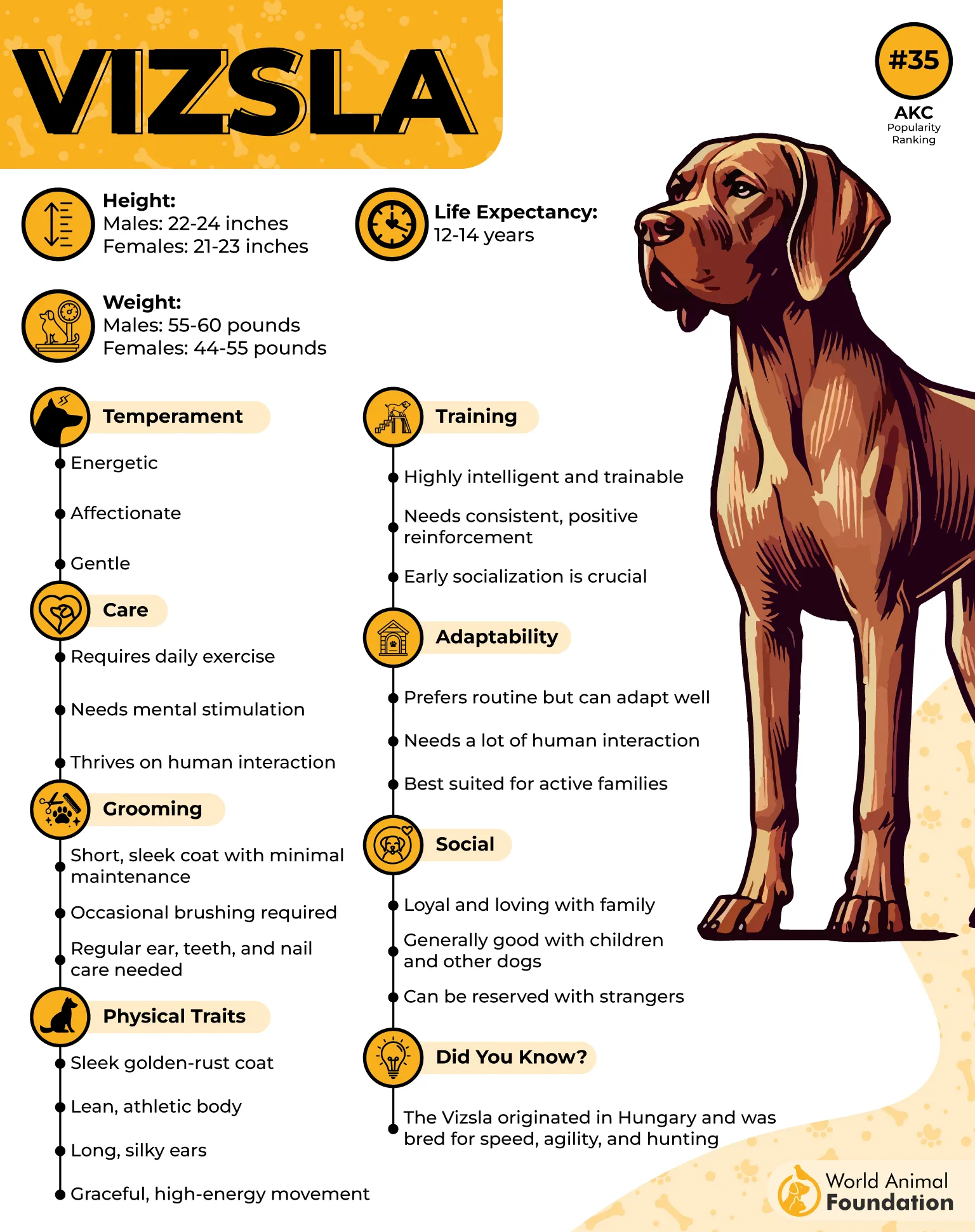
Social Nature in Hunting Settings
Vizslas are known for their eagerness to stay close, which hunters value when navigating wide landscapes. They build a strong working rhythm with their handler, remaining attentive to whistles and signals. This dependable communication makes them a steady asset around a lodge.
Note: In Hungary, Vizslas were so valued that early depictions appear in manuscripts from the 14th century, highlighting their role as trusted gundogs for nobility.
6. Weimaraner
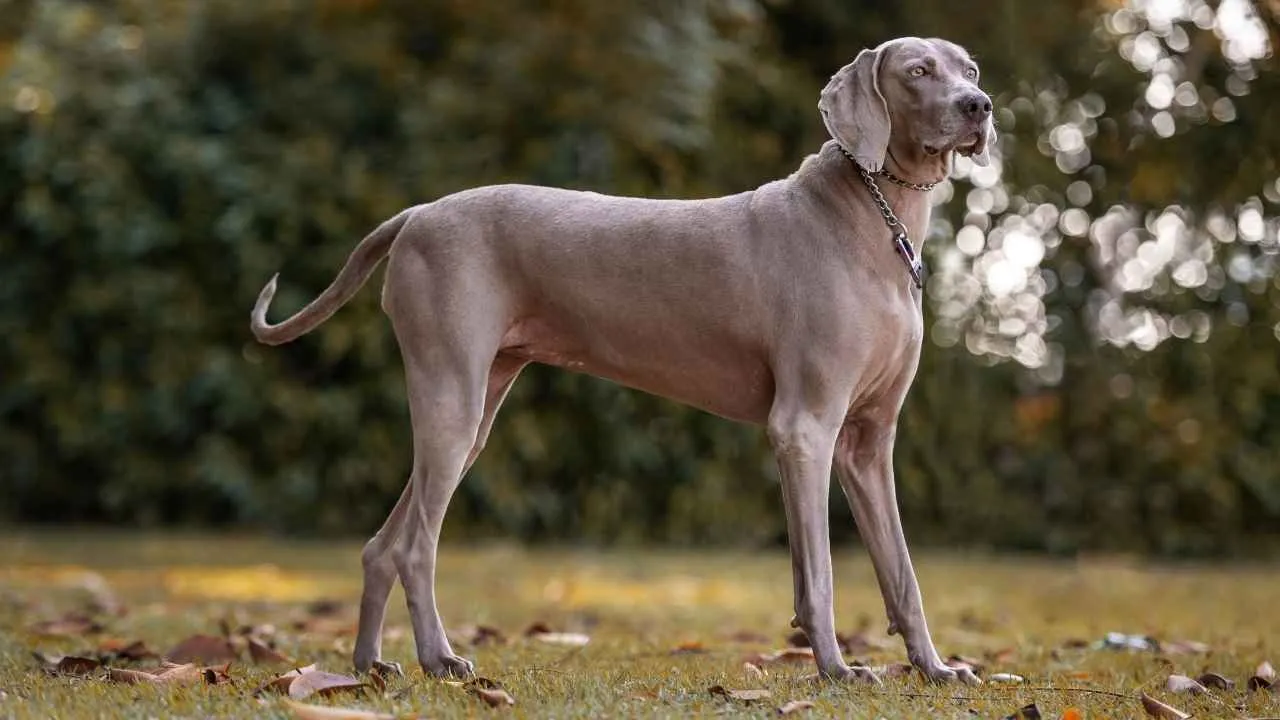
The Weimaraner is often called the “Gray Ghost” for its sleek silver coat and uncanny ability to move silently through the woods.
This natural stealth makes it a standout partner in hunting lodges where quiet tracking is essential. Originally bred in Germany, it was trusted to bring down large predators like wolves and bears.
Hunting Precision
Speed and stamina define this breed, allowing it to cover wide areas of land in search of game birds, as per Royal Canin. Hunters value its cool, composed nature during the excitement of a chase, a rare trait that keeps it focused under pressure.
A few qualities make it an efficient lodge companion:
Remarkably quick at flushing out birds
Highly responsive to whistle and hand signals
Maintains steady performance during long hunts
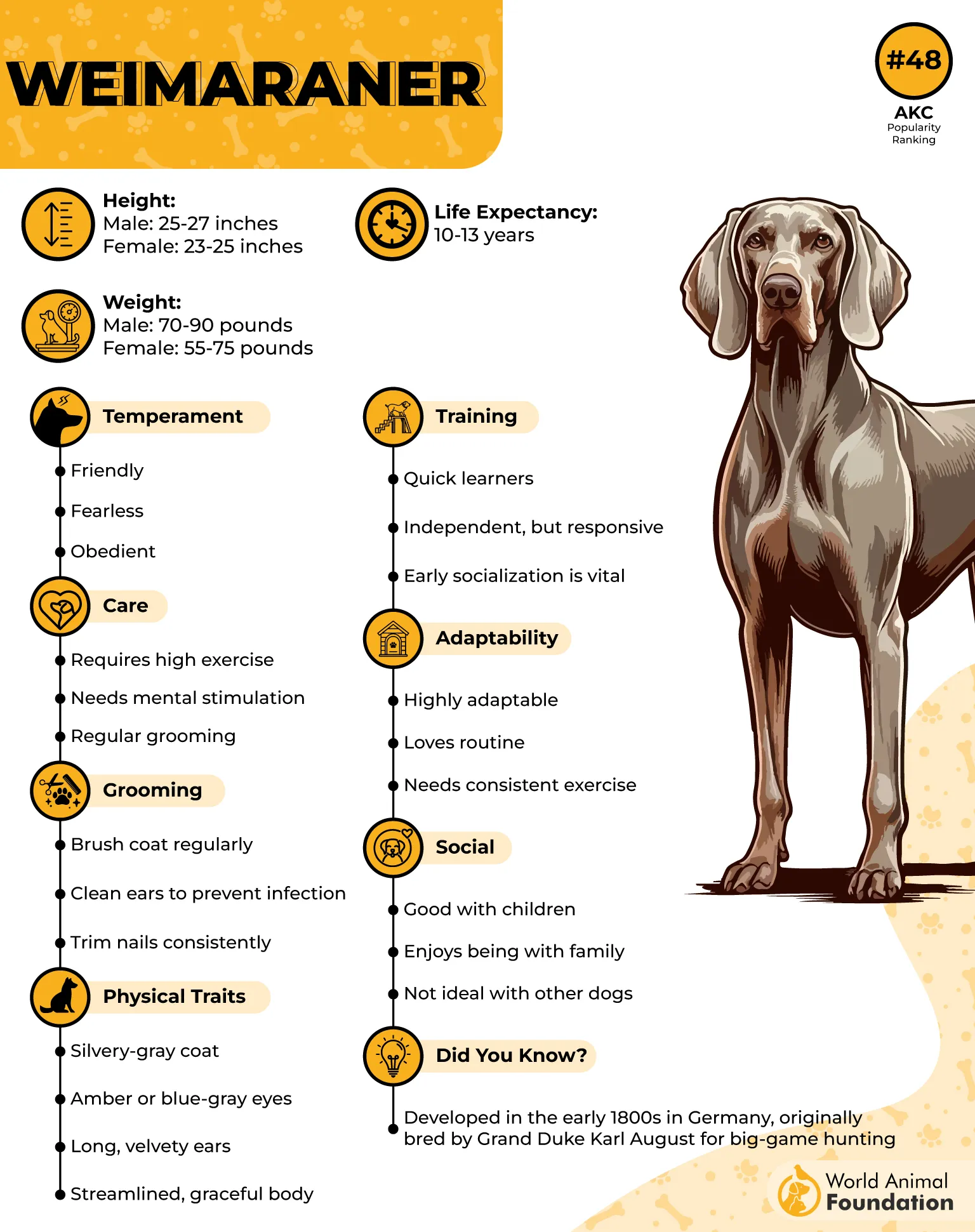
Loyalty with an Edge
Weimaraners are deeply bonded to their hunters, shadowing them with a sense of purpose. They are intelligent enough to anticipate movements, often working as if they know the hunt’s rhythm before being guided. This trait makes them both reliable and rewarding to work alongside in demanding lodge settings.
7. English Setter
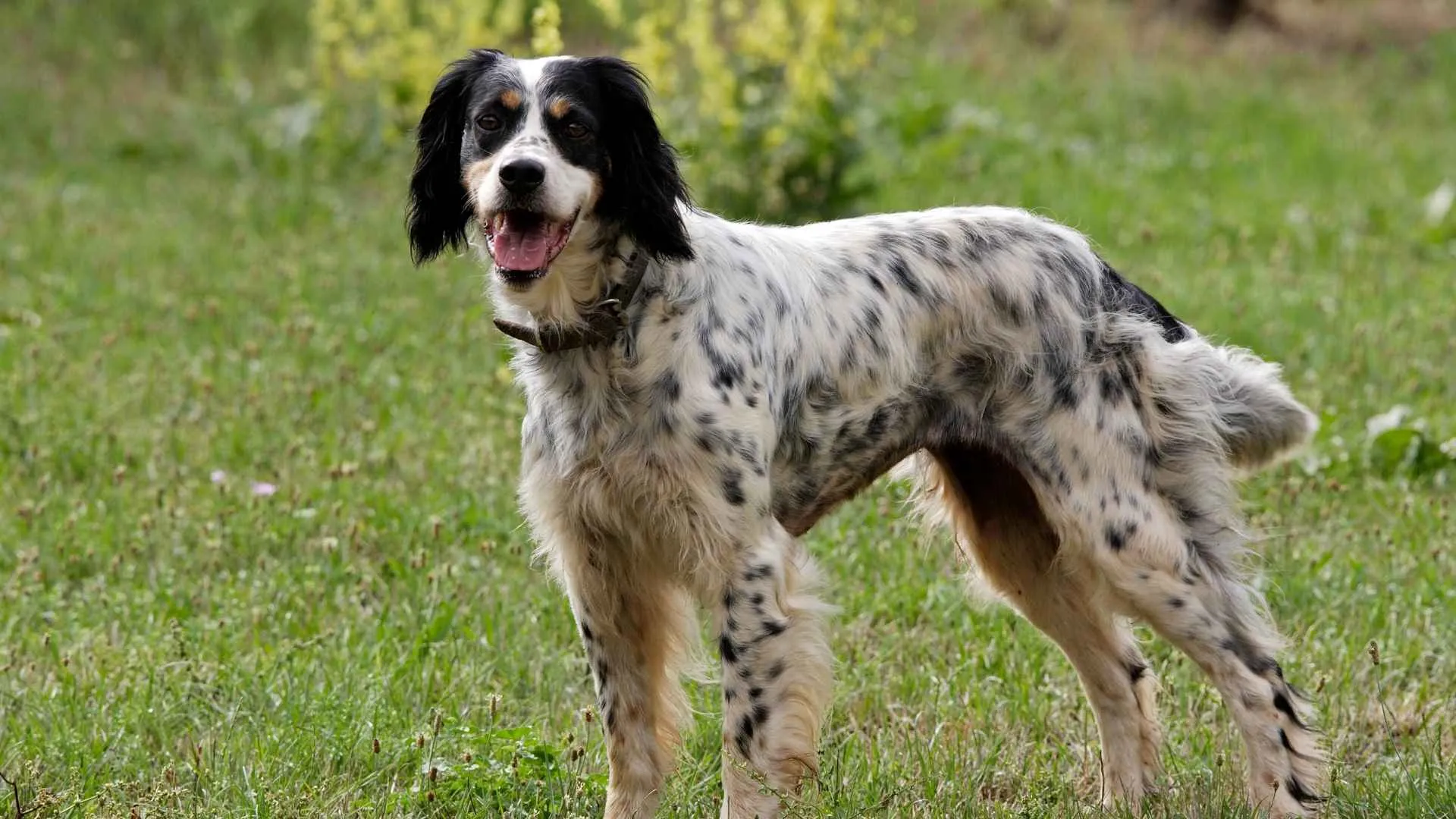
English Setters are celebrated for their elegance and stamina, qualities that have made them favorites in bird hunting for centuries. Their fluid gait and far-reaching range make them highly effective in covering large fields with minimal effort. Hunters often describe their movement as poetry in motion.
Perfect Match for Hunting Lodges
These dogs combine pointing ability with a reliable retrieving skill, making them versatile partners in upland game hunting. The “field type” setter, lighter in build and feathering, is especially suited for long days outdoors. Their adaptability allows them to shift seamlessly from active hunts to lodge downtime.
Here’s why they hold a special place in lodge settings:
Excellent at detecting and pointing birds across vast grounds
Naturally skilled retrievers that cut down on lost game
Balance of endurance and composure during extended hunts
Social Charm Beyond the Hunt
Beyond their working ability, English Setters bring a gentle and sociable nature into lodge life. They fit in comfortably with guests, offering calm companionship when the hunt is done. This combination of field instinct and affable character sets them apart from many working dogs.
8. Chesapeake Bay Retriever
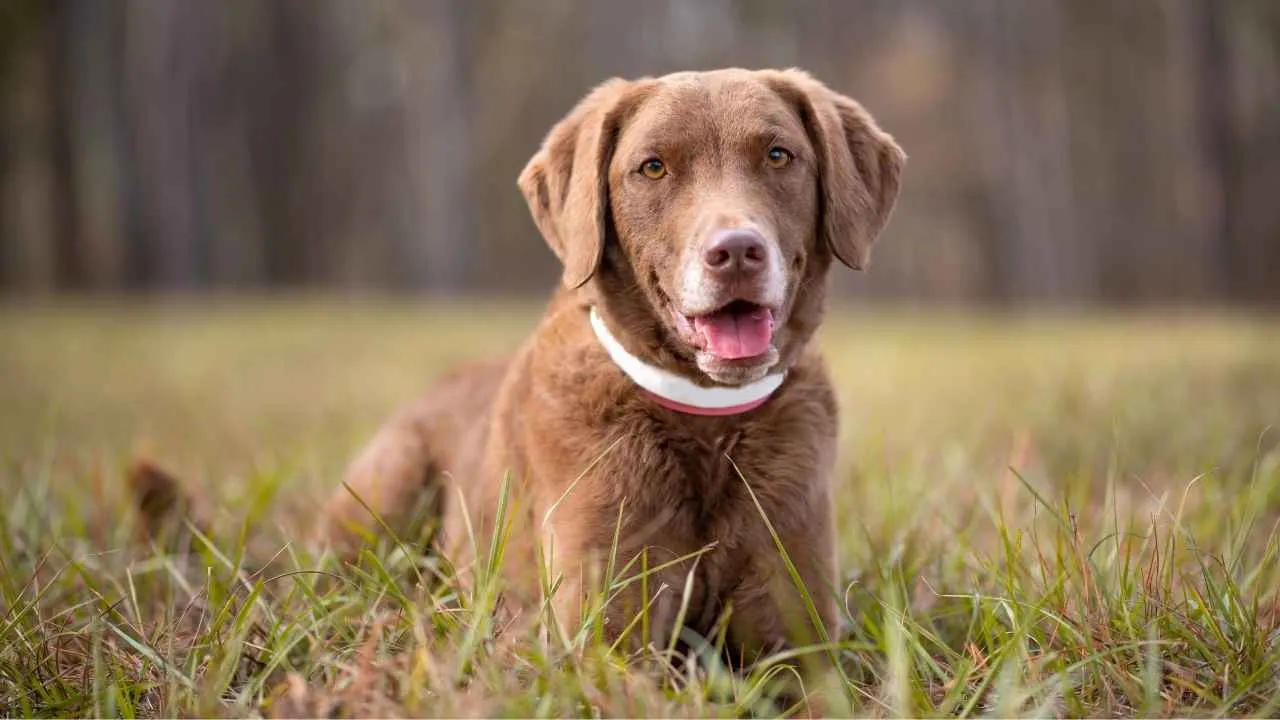
The Chesapeake Bay Retriever was bred for endurance in icy waters, retrieving ducks for hunters along the rough Chesapeake shoreline.
That legacy makes it an ideal lodge dog, capable of braving cold climates without hesitation. Its water-resistant double coat provides both protection and stamina for long days outdoors.
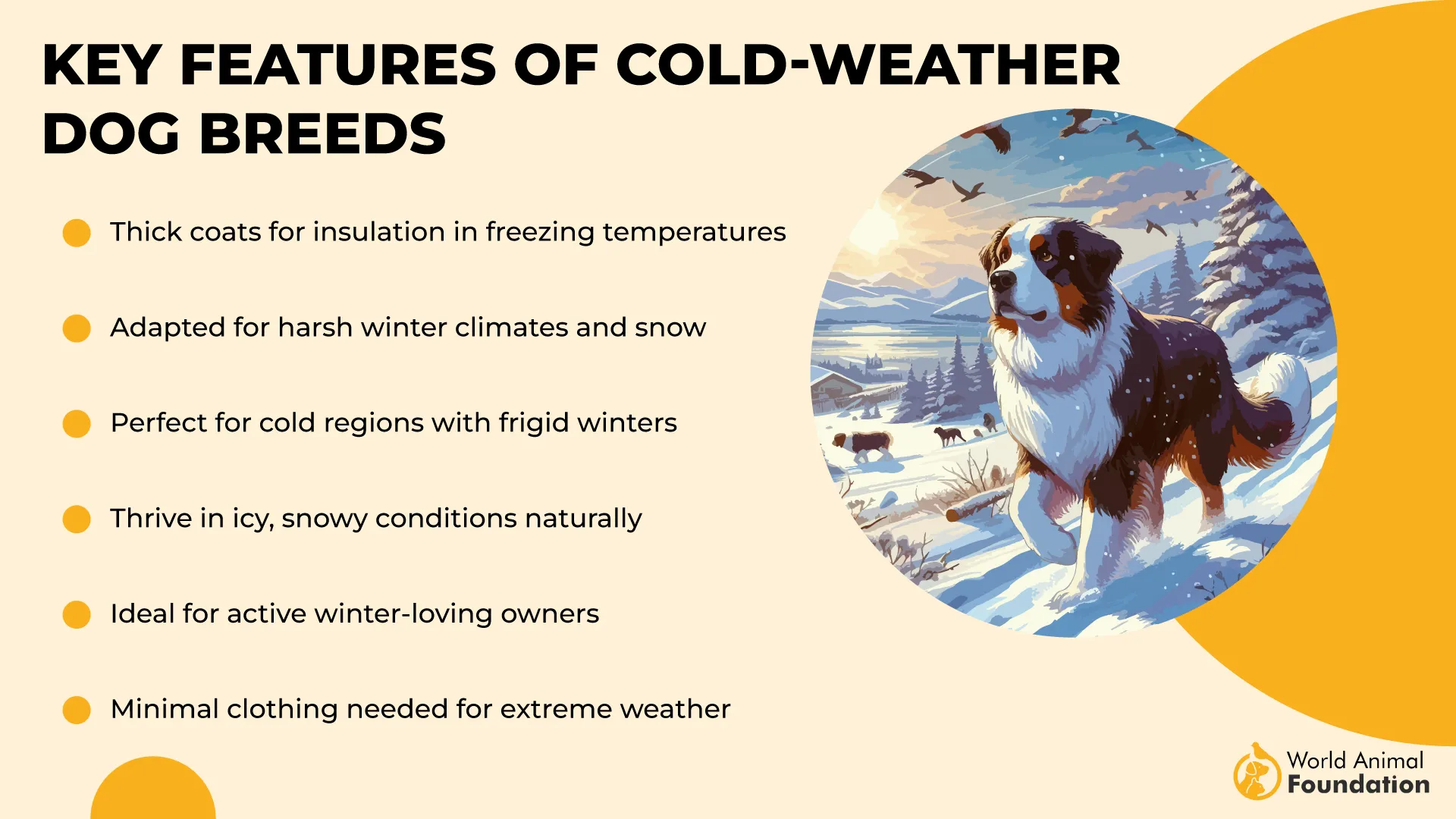
Steadfast Loyalty in the Field
This breed carries a determination that hunters deeply respect. While athletic and sharp, it balances physical strength with an unshakable devotion to its family. In a lodge setting, its instincts extend beyond waterfowl work, adding reassurance to guests and handlers alike.
A few qualities that make it stand apart include:
Natural resistance to cold and wet conditions
Highly trainable yet maintains independent problem-solving
Strong guarding instinct toward family property
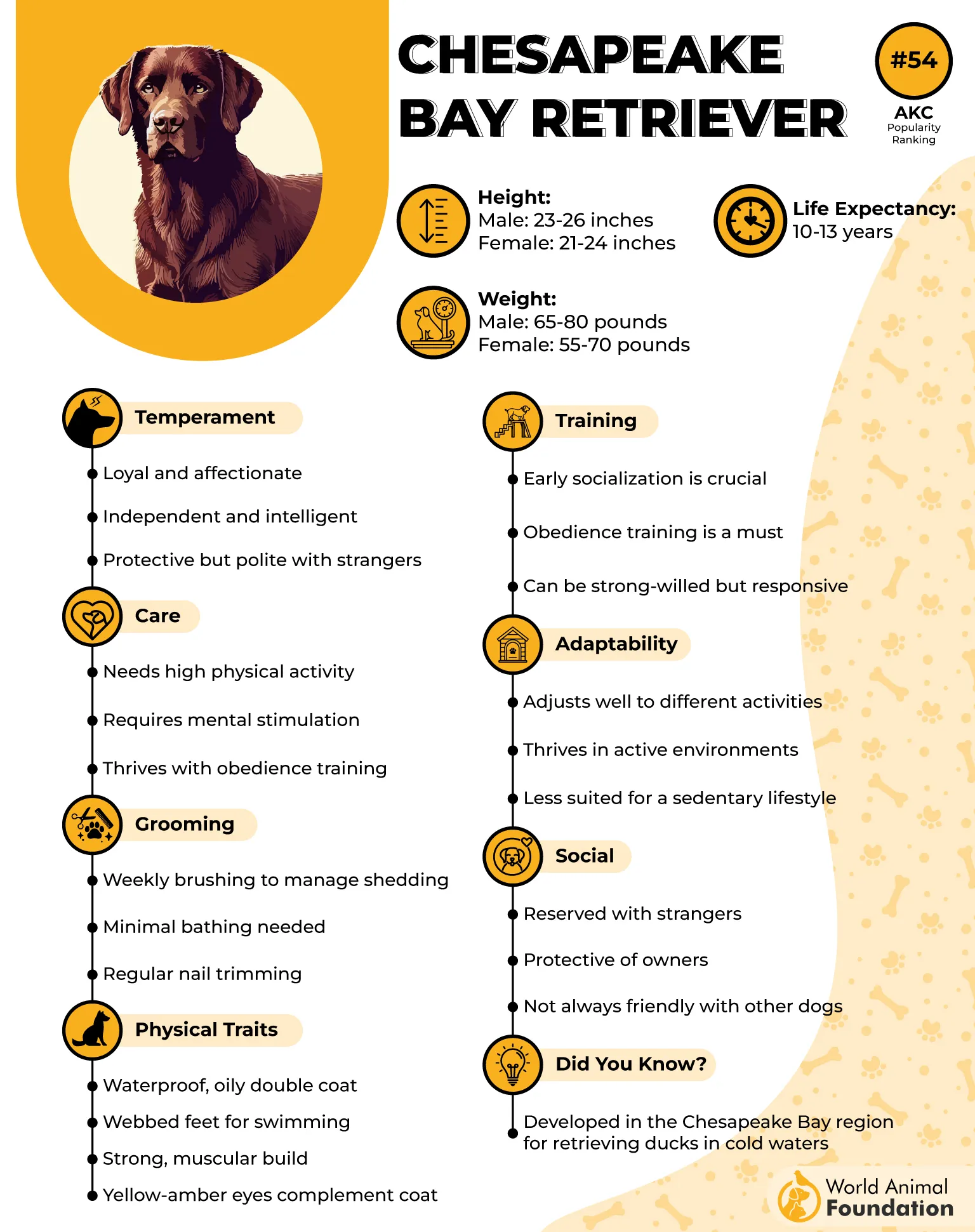
Watchful but Reserved Nature
Chessies are famously devoted but not overly social with strangers. This makes them excellent watchdogs in secluded hunting grounds where unfamiliar footsteps are noticed right away. Their presence blends hunting skill with a quiet security role that suits remote lodges.
9. Brittany
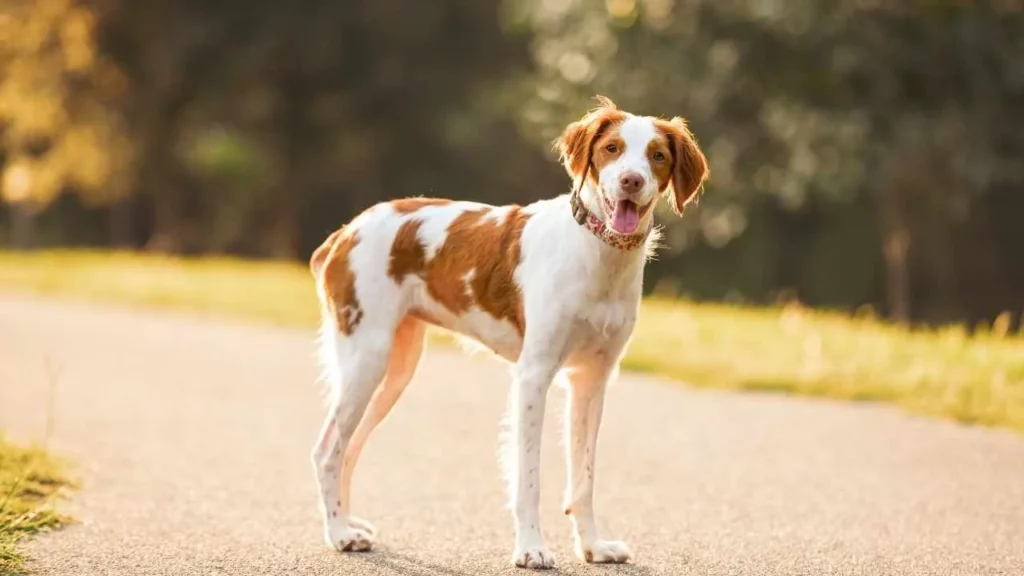
Brittany’s agility makes it one of the most reliable companions for hunting lodges. With sharp instincts and speed, it handles bird flushing and retrieving with ease. Its compact build helps it move swiftly through dense brush and rugged grounds.
Tireless Worker with Purpose
This breed is built for endurance, working long hours in the field without hesitation. Hunters value its focus and quick response during active hunts. Once back at the lodge, it settles easily into a calmer routine with people.
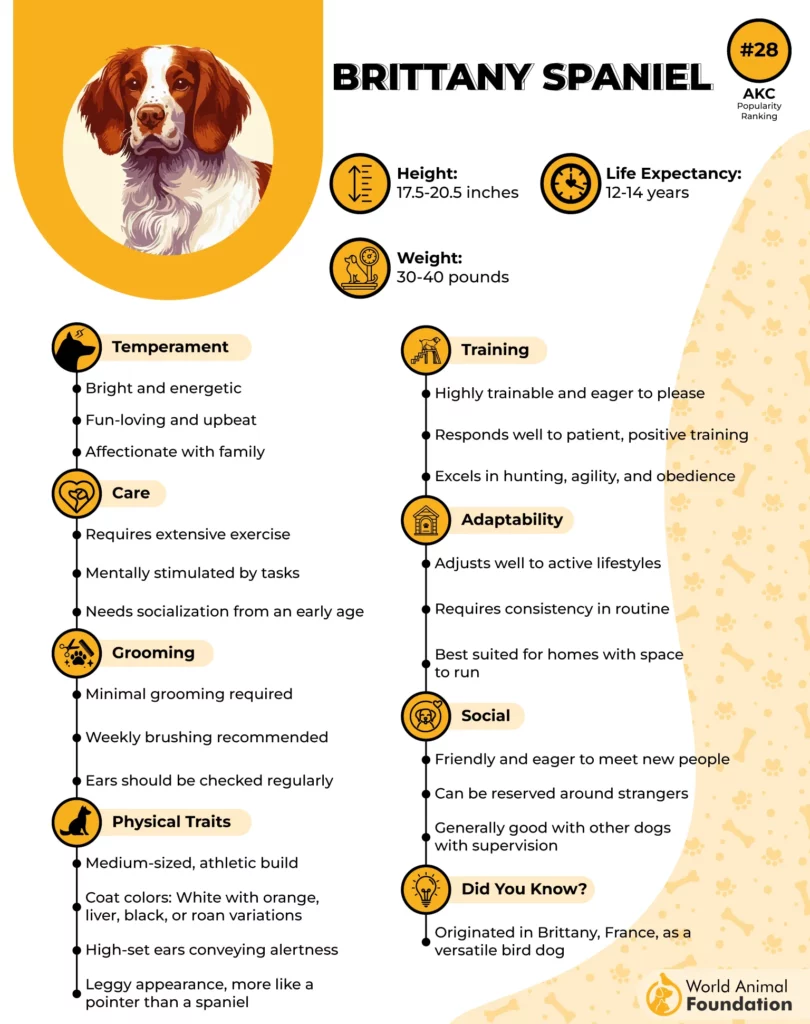
They also bring value to hunting lodges through:
Adapting quickly to varied terrain
Strong pointing and retrieving skills
Staying alert without constant guidance
Devoted Yet Playful
Beyond its fieldwork, Brittany is affectionate and engaging with families at hunting lodges. It bonds closely with those around it, making downtime just as rewarding as the hunt. However, it dislikes long periods of isolation and may become restless.
10. American Foxhound
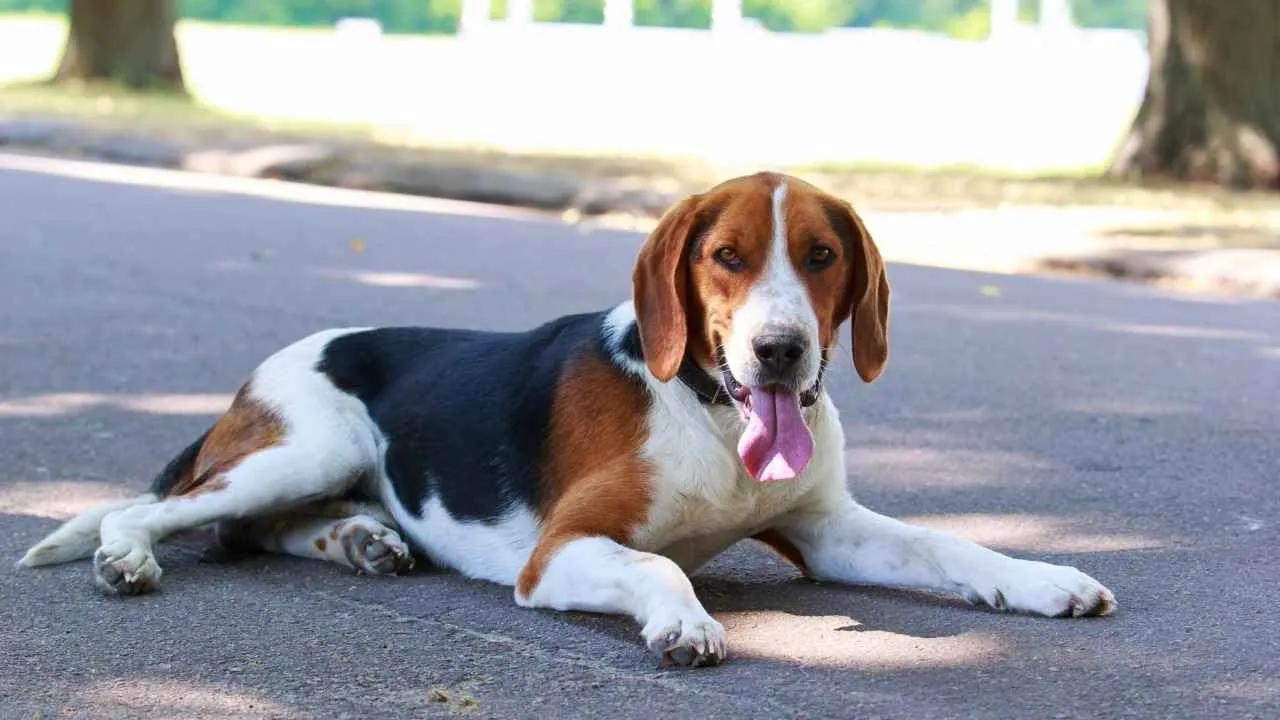
The American Foxhound is built for long pursuits, carrying remarkable stamina that hunters have relied on for generations.
Its history goes back to colonial America, where it was prized for its tireless tracking skills. This makes it a dependable dog for hunting lodges that see extended chases across varied terrain.
Sharp Nose, Steady Pace
Renowned for its powerful scenting ability, this hound follows trails with unshakable focus. Once locked on a scent, it moves with steady determination rather than bursts of speed. That patience allows it to cover miles without losing stride, which is vital for hunts that stretch over hours.
Here’s what sets them apart on the trail:
Long-distance tracking without fatigue
Consistent pursuit with unwavering focus
Strong pack instincts that enhance coordination
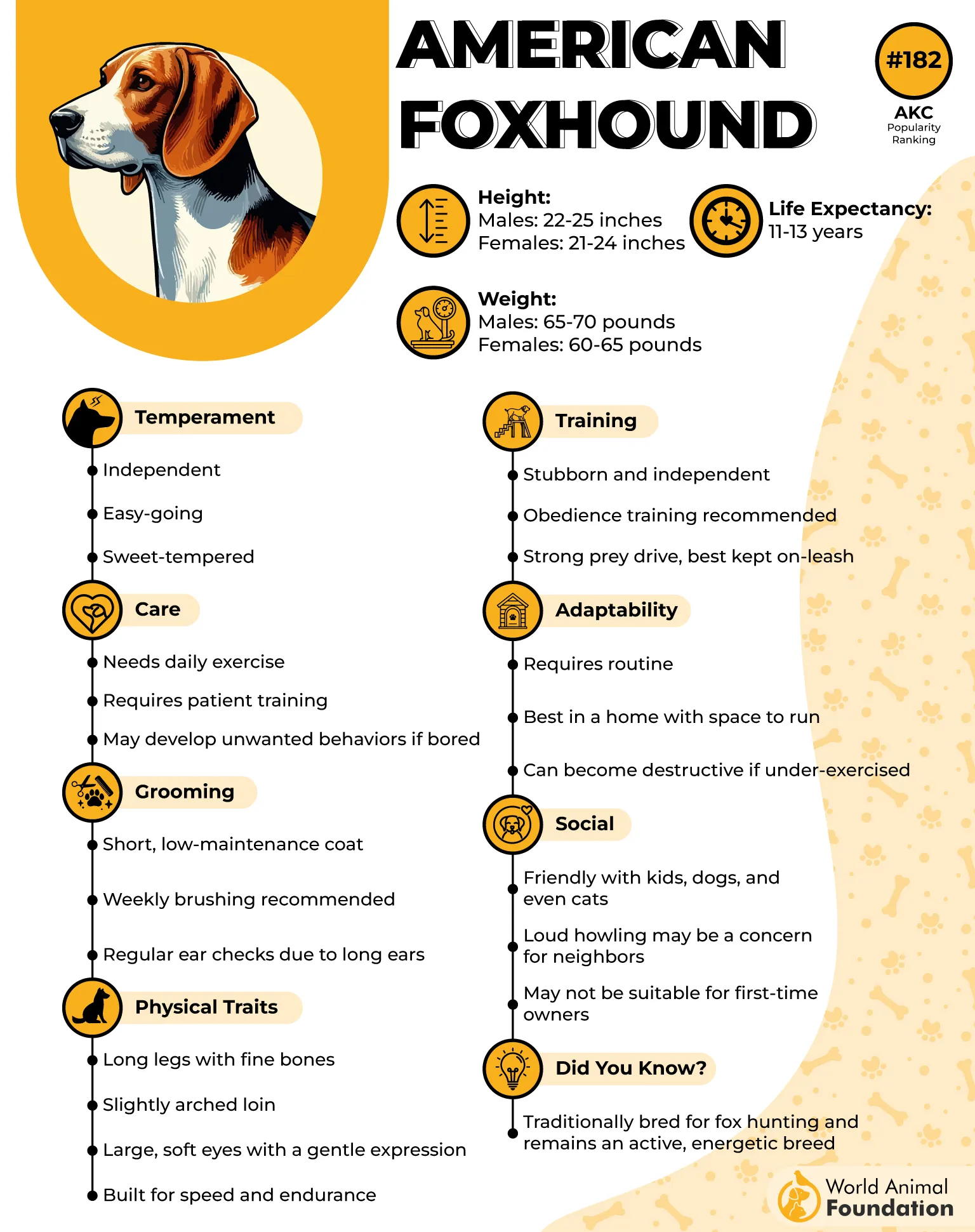
History Woven Into Hunting
Descended from English Foxhounds, this breed was initially favored for fox hunting but later proved its worth in deer hunting as well. Its background ties directly into America’s hunting traditions, making it a natural fit for lodges that value both heritage and skill.
Fun Fact: George Washington is credited with helping shape the American Foxhound through careful breeding, making it one of the earliest recognized American breeds.
Coclusion
A hunting lodge feels complete when the right dog shares the ground with its people. From the icy waters where the Chesapeake Bay Retriever proves its grit, to the wide fields where pointers and setters work with precision, each carries a role that keeps tradition alive.
Some excel in hunting small game, while others guard the lodge with quiet certainty. What they all share is a keen sense that binds them to the land and the hunters beside them. Among them, the best hunting dog breed is not one alone but the one that fits the hunter’s needs.


